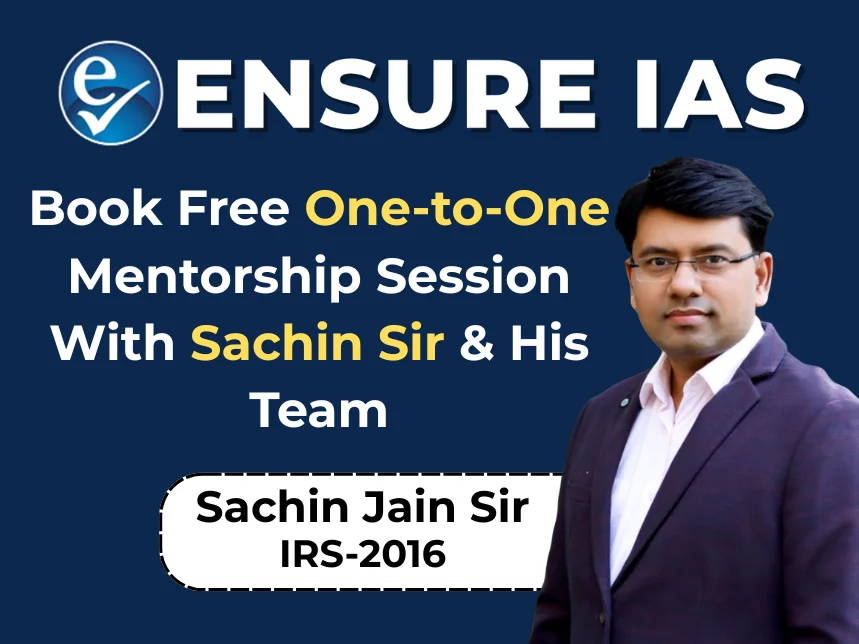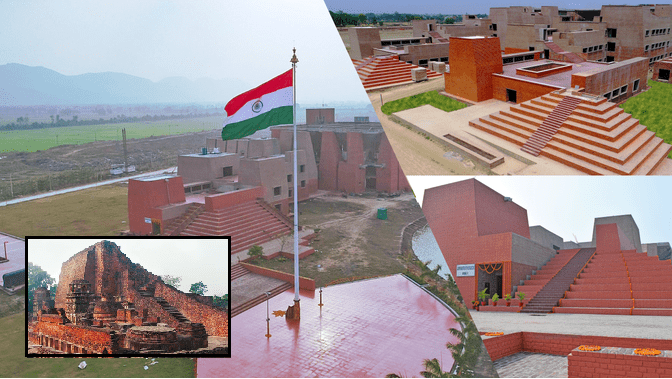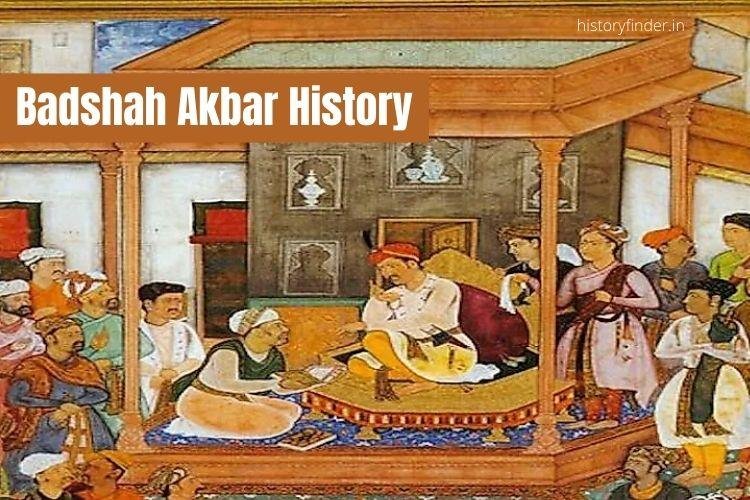- Happiness, a pursuit central to human existence, eludes a universal definition. Its essence varies from person to person, shaped by individual experiences, cultural backgrounds, and personal values. While some might find happiness in the accumulation of material wealth or achievements, others seek it in simpler, more intrinsic pleasures. This subjective nature of happiness suggests that there are as many versions of it as there are individuals. In exploring the profound assertion that “there is no path to happiness; happiness is the path,” we delve into a philosophical perspective that redefines happiness not as a destination to be reached through external accomplishments but as the very essence of our daily living. This essay examines how different interpretations of happiness influence our approach to life, urging a reconsideration of how we define and pursue what we most deeply cherish.
Cultural conditioning of Happiness
- Cultural Conditioning: Cultures around the world often have set definitions of what constitutes a successful life, which typically include career success, financial stability, and fulfilling relationships. Media, literature, and even educational systems can reinforce these ideals, creating societal pressures to achieve specific goals as benchmarks of happiness.
- The American Dream: In the pursuit of the American Dream, happiness is often equated with final tangible outcomes like obtaining a degree, securing a high-paying job, or owning a home. The path to these goals involves long hours of work, substantial financial debt, and personal sacrifice, which can lead to chronic stress, anxiety, and a sense of inadequacy. The emphasis is on the end result, not on the quality of life experienced during the pursuit, which often results in burnout and a lack of fulfillment even after achieving these goals.
- Educational Success in East Asian Cultures: Happiness in this context is defined by academic excellence and the successful entrance into prestigious universities. The journey to this outcome involves intense study schedules, immense pressure from family and society, and a highly competitive environment. This “exam hell” creates a youth culture rife with anxiety, depression, and even suicidal thoughts, where the daily experience of students is characterized by stress rather than well-being or personal growth.
- Material Wealth in Gulf Countries:In Gulf countries happiness is perceived as the acquisition of wealth and the status that comes with it. The process of achieving this involves continuous consumption and competition with others, which can lead to financial strain and deep-seated feelings of envy and inadequacy. The focus on material accumulation overlooks the emotional well-being of individuals, who may end up feeling isolated and dissatisfied despite their material wealth.
- Marriage and Family Expectations in India:Happiness is often equated with being married and having a family. The pressure to conform to this expectation leads many into relationships that do not contribute to their personal happiness. The path to this ‘ideal’ can involve compromising one’s own desires and enduring unhappy or dysfunctional relationships, leading to significant emotional distress and a feeling of entrapment rather than genuine happiness.
- Body Image Standards in Media Worldwide:In this scenario, happiness is tied to achieving a specific physical appearance propagated by the media. The effort to reach this often unattainable goal can involve harsh diets, excessive exercise, and even cosmetic procedures. This journey is filled with self-criticism, body dissatisfaction, and mental health challenges like eating disorders and depression. The emphasis on the outcome overshadows the importance of health and self-acceptance, often leaving individuals feeling unsuccessful and unhappy, regardless of their achievements.
PITFALLS OF GOAL ORIENTED HAPPINESS (OR HAPPINESS AS AN END)
- Endless Chasing — Never Arriving When happiness is tied to achieving goals, the finish line keeps moving. You get what you want — but soon after, you want more.Result: Life becomes a constant chase. Contentment remains forever just out of reach.“I’ll be happy when…” becomes a life-long loop.
- Identity Crisis After Achievement Once a major goal is reached (getting a job, finishing a degree, winning an award), people often feel lost. If all your happiness was invested in that one goal, what’s next? Result: Emptiness, confusion, or depression post-achievement — known as the arrival fallacy.“I thought this would make me happy, but I still feel the same.”
- Self-Worth Tied to Results Goal-oriented happiness often links your value as a person with what you accomplish. Failure is then not just a temporary setback — it feels like a personal flaw. Result: Low self-esteem, fear of failure, perfectionism, and shame.
- Burnout from Overexertion The constant pursuit of “more” can push people to neglect health, rest, and relationships. Overwork and constant striving can eventually lead to physical and emotional collapse.Result: Chronic fatigue, mental health issues, and disengagement from life.
- Lack of Joy in the Present Moment When all focus is on the future (the goal), the present becomes a stepping stone, not a place to enjoy. You forget to live now because you’re waiting to be happy later. Result: A life full of tasks, but empty of presence or joy.
- Reduced Intrinsic Motivation When goals are tied to rewards (money, recognition), we may stop doing things we love unless there’s an outcome attached. Passion fades, replaced by performance pressure. Result: Creative blocks, loss of interest, and a transactional view of life.
- Ignoring Values and Meaning Sometimes goals are chosen based on what looks good on paper (status, income), not what aligns with your core values. This disconnect creates inner conflict and long-term dissatisfaction. Result: Success without fulfillment. “I have everything I thought I wanted… why do I still feel empty?”
- Strained Relationships Hyper-focus on personal goals can make people neglect relationships or treat others as obstacles. Ambition, if unchecked, may cause selfishness, jealousy, or emotional distance. Result: Loneliness, poor communication, and loss of intimacy.
- Fear of Stillness or Simplicity In a goal-oriented mindset, stillness feels like wasting time, and simplicity feels like mediocrity. People struggle to just “be” without doing or achieving. Result: Restlessness, anxiety in free time, inability to enjoy slow, peaceful moments.
- Narrow Definition of SuccessA goal-focused mindset tends to measure success in narrow terms: money, fame, status, grades. Qualities like kindness, resilience, or emotional depth are undervalued. Result: A society that rewards superficial success while overlooking deeper human qualities.
GOAL ORIENTED HAPPINESS BRINGS CONFLICT IN SOCIETY ( OR HAPPINESS AS AN END )
- Social Comparison and Envy: A Culture of Measuring Lives when happiness is defined by visible outcomes—like wealth, beauty, job titles, or status symbols—it naturally leads people to compare themselves with others. In a society obsessed with outcomes, someone else’s success often feels like your failure. Why it creates conflict: People begin to feel insecure, envious, or resentful when they perceive others as more successful.Real-life example: Social media intensifies this. People post curated images of vacations, weddings, achievements—rarely their struggles. This distorted view causes widespread dissatisfaction and competition, especially among youth.Result: Instead of building each other up, individuals start competing for likes, status, and recognition—straining relationships, eroding genuine connection, and increasing loneliness.
- Erosion of Cooperation and Trust In a society where only winners are celebrated, others are seen as competitors—even friends, family, or coworkers. Why it creates conflict: The belief that happiness comes from “getting ahead” turns life into a zero-sum game. If you win, I lose. Example: In schools and workplaces, people may hoard knowledge, avoid collaboration, or even sabotage others to gain personal advantage—especially when rewards like promotions or admissions are limited.Result: Trust erodes. Communities become fragmented. The human need for connection and belonging is sacrificed at the altar of personal success.
- Short-Term Gains over Long-Term Fulfillment Outcome-driven societies glorify speed and achievement over integrity and sustainability. People feel pressured to “get there fast” and may resort to shortcuts, regardless of the cost. Why it creates conflict: People cheat, manipulate, or overwork themselves and others to meet societal standards. There’s little appreciation for the journey or the effort itself. Example: Students cheat on exams. Employees inflate achievements. Businesses prioritize short-term profits over ethical or environmental concerns. Result: Ethical decay, loss of meaning in work or study, and widespread burnout.
- Rigid Norms and Life Templates When happiness is outcome-based, only certain life paths are seen as valid: marry by 30, own a house, have children, earn a six-figure salary. Those who deviate are judged or pressured to conform.Why it creates conflict: People who want to remain single, childfree, creative, spiritual, or unconventional are seen as “incomplete” or even “failures.” Example: In many societies, unmarried women or men past a certain age face social stigma, even if they are content and independent.Result: Emotional distress, suppression of individuality, and the exclusion of alternative, equally meaningful paths to happiness.
- Mental Health Crisis Fueled by Pressure Outcome-based definitions of happiness generate relentless pressure to perform, succeed, and prove worth. The result? A society where people are exhausted, anxious, and depressed—even when they appear “successful.” Data point: The WHO states that depression is now the leading cause of disability worldwide.Example: The rise of burnout in high-achieving professions (law, tech, medicine) shows how outward success can hide deep unhappiness.Result: A culture where people sacrifice well-being for metrics, mistaking performance for purpose.
- Growing Inequality and Social FrustrationWhen happiness is equated with material or visible success, those with less—due to lack of opportunity, privilege, or access—feel excluded from the happiness narrative.Why it creates conflict: People at the margins feel angry, disconnected, and undervalued. They may rebel or withdraw from a society that doesn’t recognize their worth.Example: Protests over youth unemployment or wealth inequality (e.g., Occupy Wall Street, farmer protests, student movements) reflect frustration with systems that reward the few and ignore the rest.Result: Social unrest, polarization, and loss of social cohesion.
- Shallow Governance and Policy Making If nations define success only by economic growth (GDP, FDI, etc.), then policies will chase numbers, not quality of life.Why it creates conflict: Education, health, environmental protection, and mental health may be neglected because they don’t show immediate “returns.”Example: A country may boast high GDP while its citizens suffer from poor work-life balance, mental illness, or rising inequality.Result: Progress on paper, suffering on the ground.
GOAL-ORIENTED HAPPINESS (OR HAPPINESS AS AN END) IS INDIVIDUALISTIC AND MAY PROMOTE “US VS. THEM” THINKING
- Focus on Personal Gain Over Collective Good Goal-oriented happiness is often based on personal milestones: promotions, awards, money, fame, or academic scores. The underlying message is: “I will be happy when I achieve X.”Why it’s individualistic: It centers happiness on personal success, not shared joy or collective well-being.Why it’s divisive: In environments where resources or recognition are limited, others become competitors instead of collaborators.Example: In a corporate setting, if happiness is linked to getting promoted, colleagues may be seen as rivals, creating office politics, mistrust, and fragmentation.
- Comparison Breeds DivisionWhen happiness depends on outperforming others, comparison becomes inevitable.“I’m only happy if I’m doing better than them.”This creates a hierarchy of happiness, where someone else’s success threatens your own.It also fuels envy, resentment, and exclusion, especially among peers.Example: Students in competitive school systems may begin to root against one another, or feel isolated if they fall behind—even if they are learning and growing.
- Tribalism and Social Fragmentation On a larger scale, outcome-focused happiness can create identity-based divisions — between the achievers and the “failures,” the successful and the struggling, the “winners” and the “losers.”Result: People begin to group into “us” and “them.”The privileged feel pressure to maintain status; the underprivileged may feel resentment, alienation, or inferiority.Example: In societies that glorify wealth as the measure of happiness, class divides widen. The rich may isolate themselves, while the poor may feel blamed for their “lack of effort.”
- Fuels Hyper-Competition and ConflictWhen happiness is goal-based and competitive, success becomes a zero-sum game: “If you win, I lose. ”This can result in:Workplace rivalries ,Academic pressure cooker environments, Political polarization Cooperation declines, and conflict increases. Example: Even in sports or politics, the focus on “defeating” the other side often overshadows shared values or common goals.
- Ignores InterdependenceWe are social beings. Real, lasting happiness often comes from relationships, purpose, and belonging—not isolated achievement.Goal-oriented happiness ignores that we grow through connection, not competition. By promoting a “solo success story” mindset, it overlooks the role of family, community, mentors, and teams.
GOAL-ORIENTED HAPPINESS MAY BE UNREALISTIC, IRRATIONAL, OR WASTEFUL
- Influenced by External Expectations, Not Inner Desires Many goals people chase aren’t truly their own — they’re absorbed from society, family, media, or peers.Individuals often pursue careers, marriages, or lifestyles simply because they were told these would bring happiness.Example: A student may aim to become a doctor not out of passion, but because it’s a “prestigious” path. Even after achieving the goal, they may feel empty or unfulfilled.Problem: The goal reflects approval-seeking, not authentic desire.
- Unrealistic Standards Set by Society Society often glamorizes “big” goals — massive wealth, perfect bodies, fame, or ideal relationships.These are often unattainable for most, or take decades of sacrifice — and still may not guarantee happiness.Example: Media portrayals of “happy, successful lives” may push people to set unrealistic goals that require overworking, overspending, or losing touch with their values.Problem: People feel like failures for not reaching fantasy standards that were never real to begin with.
- Constant Moving of the Goalpost Even when goals are achieved, the satisfaction is short-lived — leading people to immediately set the next one.The belief is: “This didn’t make me as happy as I expected — maybe the next one will.”Example: Someone who reaches a high salary still feels unsatisfied and immediately targets an even higher income, repeating the cycle endlessly.Problem: The happiness model is based on chasing, not arriving.
- Resource-Draining and Wasteful Many goal-chases consume enormous time, money, and energy — without delivering proportional joy.People may invest years preparing for a career, spending on weddings, or acquiring status symbols that leave them in debt or exhausted.Example: Spending ₹30 lakhs on a wedding to impress relatives may bring more stress than happiness — and could’ve funded a home or education instead. Problem: Emotional and financial resources are poured into symbolic victories, not actual well-being.
- Ignores Life’s Unpredictability Goal-oriented happiness assumes life will go according to plan — but real life is full of uncertainty, illness, loss, or failure. When plans fall apart, those with rigid goal-based mindsets often collapse emotionally.Example: A person who ties their happiness to a dream job may feel devastated if they’re laid off or rejected — unable to adapt or redefine their path. Problem: It’s a fragile model that struggles in the face of change or loss.
HAPPINESS AS A PATH SCORES BETTER: A DEEPER LOOK
- It Encourages Presence, Not Pressure Instead of deferring happiness to a future goal, it allows individuals to find joy in the present moment — in small routines, relationships, and everyday actions. Result: Less anxiety about the future, and more appreciation of life as it unfolds.You don’t have to wait to be happy. You can be happy while moving forward.
- It’s Emotionally Sustainable Because path-oriented happiness is based on internal states — such as peace, purpose, and mindfulness — it’s less vulnerable to external ups and downs.Result: More emotional resilience and stability, even in uncertain times.Life becomes less of an emotional rollercoaster, and more of a steady journey.
- It Reduces Toxic Comparison When happiness is in the path, you’re not measuring yourself against others’ achievements — you’re focused on your own growth and experience.Result: Less jealousy, less insecurity, and a stronger sense of self-worth.Your path is your own. You walk it at your pace, not in competition.
- It Builds Meaning, Not Just Milestones Instead of chasing superficial goals, path-based happiness helps you live in alignment with your values — such as kindness, creativity, service, or curiosity.Result: A deeper, more fulfilling life that feels right, even without external recognition.“I feel good because this life makes sense to me — not because I’ve ticked boxes.”
- It Allows for Flexibility Goals can fail. Plans can change. But when happiness lies in the process, you’re more adaptable and open to detours. Result: Less fear of failure, more openness to growth and discovery.“Even if I don’t reach where I thought I would, I’m still growing and learning.”
- It’s Inclusive and Accessible Not everyone can “succeed” by society’s standards (fame, fortune, titles), but everyone can find joy in the path — in relationships, in learning, in small acts of meaning. Result: A more humane and compassionate society that doesn’t leave people behind.Happiness doesn’t require privilege — it requires perspective.
- It Strengthens Relationships When you’re not just chasing personal goals, you make time for people — for community, empathy, and shared joy.Result: Deeper bonds, less loneliness, more social cohesion. In path-based happiness, people matter more than trophies.
“How Embracing Happiness as a Path Fosters Stronger Communities and a More Peaceful Society”
- Community Volunteerism vs Competitive Achievement Goal-Oriented Mindset: A student volunteers only to improve their resume or college application. Once the goal is achieved, the service stops. Path-Oriented Mindset: Another student volunteers regularly because it gives them joy, purpose, and a sense of belonging. They form lasting relationships and continue to contribute beyond formal requirements.Social Impact: The second student builds stronger community ties, spreads compassion, and becomes a long-term contributor to society.
- Gandhi’s Life and Satyagraha Movement Gandhi’s Path: Gandhi didn’t chase political power or titles. His focus was on truth (satya) and nonviolence (ahimsa) — a path he walked daily. His personal discipline and peace-centered practice inspired a massive peaceful movement. Social Impact: His path-based happiness approach united millions, reduced violence, and built a stronger moral foundation for Indian society.
- Scandinavian Countries’ Approach to Well-being Countries like Denmark, Finland, and Norway, which consistently rank high on the World Happiness Report, focus on everyday quality of life — not just economic growth. Policies emphasize work-life balance, education, community trust, and healthcare — happiness as an ongoing condition, not just tied to GDP or job titles. Social Impact: Lower crime rates, higher trust in government, greater social equality, and more cooperative communities.
- Japanese Concept of Ikigai (Reason for Being) In Japan, especially in places like Okinawa (known for longevity), people don’t “retire” in the Western sense. They continue gardening, cooking, teaching, or crafting well into old age — because they love it. Happiness lies in daily purpose, not in achieving a retirement fund or status. Social Impact: Stronger intergenerational bonds, mental health, and vibrant local communities.
- Traditional Indian Gurukul In ancient Indian education systems, learning was not for degrees or jobs — but for wisdom, self-discipline, and dharma (righteous living). Students lived simply, learned from nature and teachers, and focused on character over credentials. Social Impact: Produced thoughtful, ethical, and peaceful individuals who contributed to society holistically. Absolutely, happiness as an end — or the ultimate goal in life — certainly holds its own significance. While the path to happiness is important for creating ongoing fulfillment, achieving happiness as a final destination also plays a vital role in shaping a meaningful and well-rounded life. Here’s how happiness as an end can be crucial:
HAPPINESS AS AN END HAS ITS OWN IMPORTANCE
- Provides Clarity and Motivation Happiness as an end gives you a clear sense of purpose. It defines your ultimate goal — what you are working towards in life.Knowing that happiness is your ultimate aim helps you make decisions that align with your values and aspirations, and it gives your efforts a meaningful direction.Example: A person striving for career success may find ultimate fulfillment not in the job title but in the happiness they derive from the work itself and the people they help.
- Acts as a Measure of Success Happiness as an end provides a universal metric for success. Achieving happiness becomes the final benchmark by which you can assess the outcomes of your efforts, goals, and lifestyle choices. It simplifies complex achievements by focusing on your emotional and mental well-being as the ultimate indicator of a fulfilled life.Example: Someone might achieve wealth or fame, but without happiness as the end goal, they may still feel empty or disconnected from a meaningful purpose.
- Drives Well-Being If happiness is seen as an end, it encourages people to actively prioritize their mental, emotional, and physical well-being. This holistic approach leads to healthier living, where both personal satisfaction and societal contributions are nurtured.Happiness as the end goal isn’t about immediate gratification but creating an enduring sense of well-being that allows individuals to thrive in all areas of life.Example: Pursuing hobbies, spending quality time with family, or engaging in self-care can be viewed as essential steps toward achieving the end goal of happiness.
- Enhances Contentment and Acceptance Happiness as an end also helps cultivate contentment. When happiness is the goal, the focus shifts toward accepting where you are, rather than constantly striving for more without appreciating the present moment. It leads to greater satisfaction, reducing the chronic anxiety or dissatisfaction that comes from a goal-oriented happiness model.Example: Individuals who achieve happiness as an end might feel a sense of peace with their accomplishments and relationships, accepting them for the fulfillment they bring, without continuously seeking more.
- Fosters Altruism and Collective GoodWhen happiness is viewed as an ultimate goal, it often includes the happiness of others as part of your definition. True happiness typically involves social connectedness, empathy, and the well-being of those around you.As people reach happiness as an end, they often become more inclined to help others achieve the same, thereby creating a positive ripple effect in society.
- Example: Social movements or philanthropic efforts often arise from the desire for collective happiness, where individuals work towards not only their own happiness but the happiness of communities.
- Anchors Long-Term FulfillmentThe pursuit of happiness as an end ensures that, even through life’s ups and downs, there is a steady point of fulfillment. Unlike fleeting accomplishments, happiness as an end provides lasting emotional and psychological satisfaction.It encourages individuals to reflect on their values and experiences and to integrate them into a fulfilling life story.Example: For someone who has worked hard for many years in a career that aligns with their values, happiness as an end allows them to reflect back and find deep satisfaction in the journey, regardless of external recognition.
- Final Thought:While happiness as a path emphasizes the journey and living in the moment, happiness as an end provides clarity, purpose, and direction. It serves as the destination that ultimately shapes the way we live, make decisions, and find fulfillment. Balancing both perspectives — the journey and the end goal — creates a well-rounded, sustainable pursuit of happiness. 🌱
PHILOSOPHICAL THINKERS ON HAPPINESS
- Aristotle: Eudaimonia and the Good LifeAristotle’s concept of eudaimonia (often translated as “flourishing” or “living well”) is central to his ethical philosophy. According to Aristotle, happiness is not a state of fleeting pleasure or an external achievement, but a process of living in accordance with virtue over the course of one’s life. For Aristotle, the path to happiness is gradual and rooted in continual self-improvement and the cultivation of virtues such as courage, wisdom, and temperance. Happiness, in this sense, is found in the pursuit of a life well-lived, not in specific external outcomes.
- Buddhism: The Noble Eightfold PathIn Buddhist philosophy, happiness is not seen as a destination but as the natural byproduct of following a path of mindfulness, ethics, and wisdom. The Noble Eightfold Path is the Buddhist guide to end suffering and attain enlightenment. This path emphasizes right understanding, right intention, right speech, right action, right livelihood, right effort, right mindfulness, and right concentration. Through this process of ethical living and mental training, individuals move closer to inner peace and happiness.
- John Stuart Mill: The Pursuit of Higher PleasuresIn utilitarian philosophy, happiness is often thought of as the greatest pleasure or the absence of pain. However, John Stuart Mill refined this view by distinguishing between different types of pleasure. Mill argued that higher pleasures (intellectual, artistic, and moral pursuits) provide more lasting and deeper happiness than mere physical or material pleasures.Happiness is a continual process of making choices that maximize our ability to experience higher pleasures. It is about living in accordance with our true intellectual and moral capacities, not just seeking transient pleasures.
- Søren Kierkegaard: The Importance of the Journey The Danish philosopher Søren Kierkegaard argued that the pursuit of happiness through material success or social conformity ultimately leads to existential despair. He emphasized that true happiness comes from living authentically and aligning with one’s inner self. Kierkegaard’s notion of happiness is deeply tied to personal freedom, choice, and faith, but it requires an ongoing journey of confronting existential challenges and embracing one’s authentic path.Kierkegaard believed that happiness cannot be achieved through external goals but arises from the continuous process of self-realization and embracing life’s uncertainties and responsibilities.
- Martin Heidegger: Being and AuthenticityThe German philosopher Martin Heidegger in his work Being and Time emphasized the importance of authentic living as central to human existence. According to Heidegger, modern life often distracts individuals from their true selves, leading to inauthentic existence—a life lived according to social norms, external expectations, and unreflective habits. He believed that happiness comes from understanding one’s true self, embracing mortality, and living authentically, which is a continuous process rather than a fixed goal. Happiness is found in the process of becoming authentically oneself—by reflecting on one’s existence and living in accordance with personal values rather than external pressures.
- Jean-Paul Sartre: The Path to Freedom In existentialism, particularly in Jean-Paul Sartre’s philosophy, happiness is about freedom—the freedom to choose one’s path and define one’s existence. Sartre argued that human beings are condemned to be free, meaning that we are responsible for creating meaning in our lives. Happiness, in this context, is not found in external achievements but in the freedom of making choices and embracing responsibility for one’s life.Happiness arises from the ongoing process of choosing one’s own path and accepting the consequences of those choices. It is about the freedom to create meaning in one’s life, not about any final external achievement.
- Confucianism: The Path of HarmonyIn Confucian philosophy, happiness is deeply linked to the concept of harmony — both within oneself and with the larger society. Confucius taught that the path to happiness lies in fulfilling one’s social duties, cultivating virtue, and practicing rituals that promote social order and personal integrity. Happiness is achieved through the continuous practice of virtue and the realization of one’s role in society. Happiness as the path involves continuous self-cultivation, maintaining social harmony, and living in accordance with virtue and ethical conduct.
- The Buddhist Perspective: Impermanence and the Path to Happiness Buddhism teaches that impermanence is central to the human condition, and clinging to material outcomes or fixed goals only leads to suffering. The Buddha taught that true happiness comes from accepting impermanence, practicing detachment, and walking the Eightfold Path—a guide to ethical living, mental discipline, and wisdom. Happiness is found in the journey of mental cultivation and the gradual unfolding of wisdom, compassion, and insight, rather than any final achievement.






